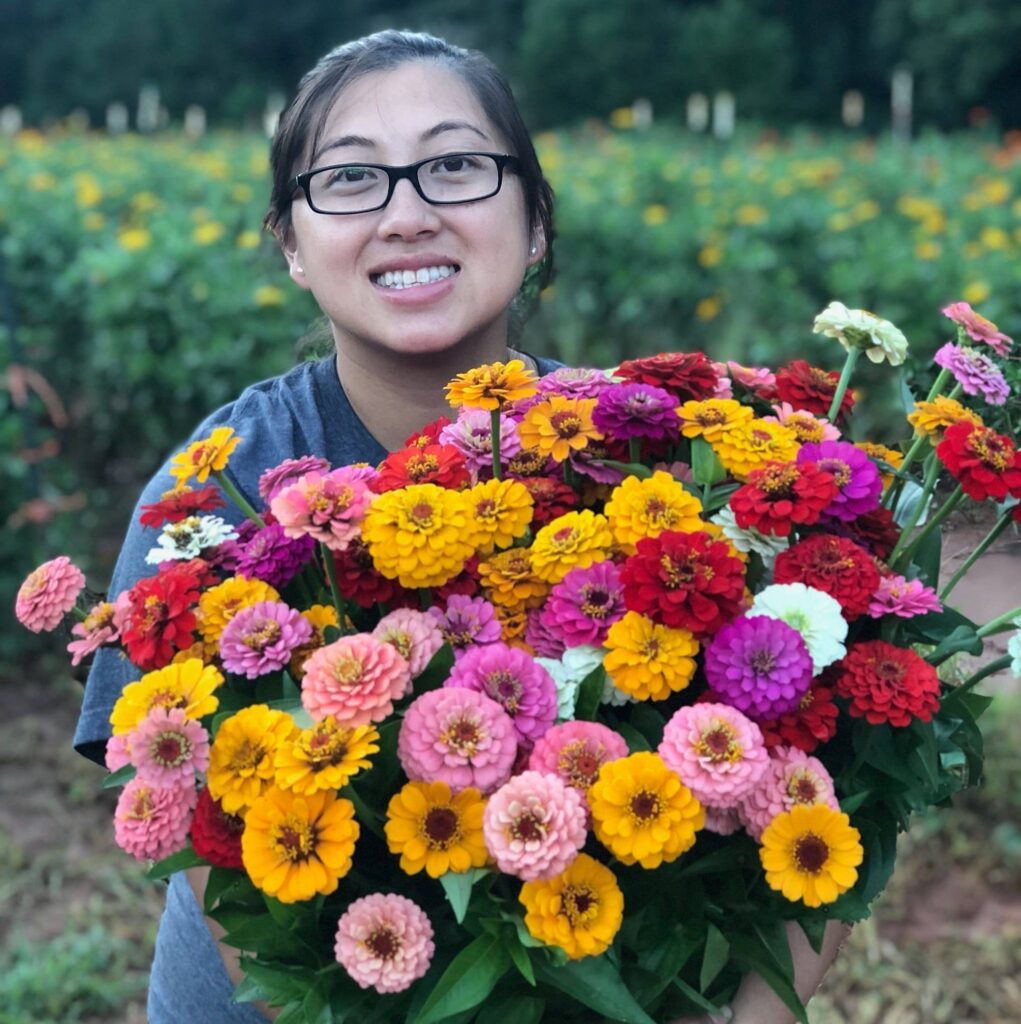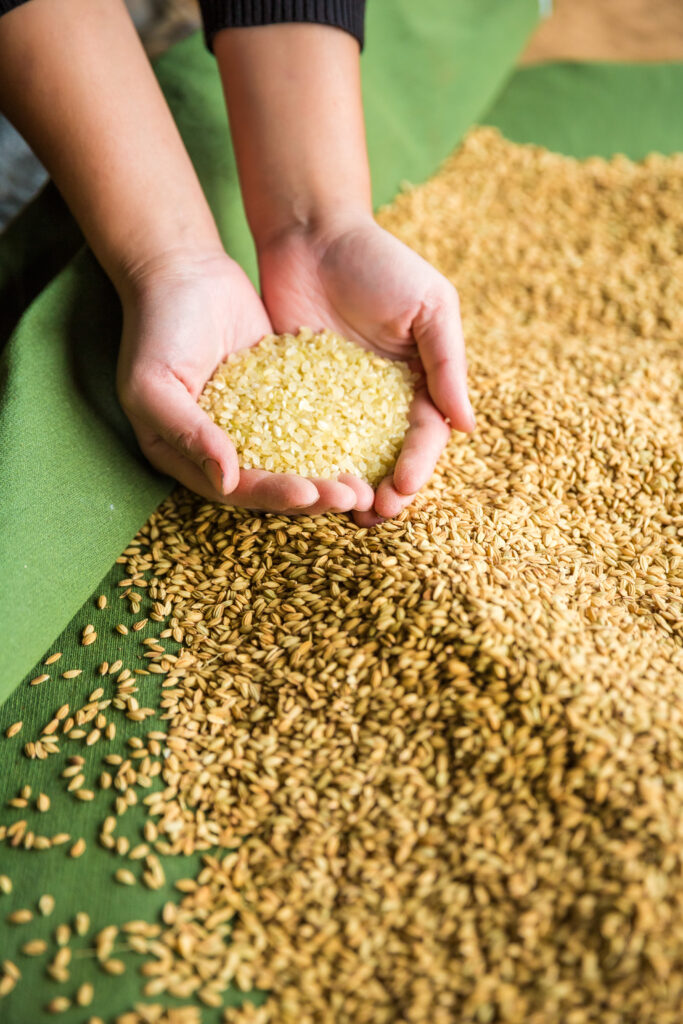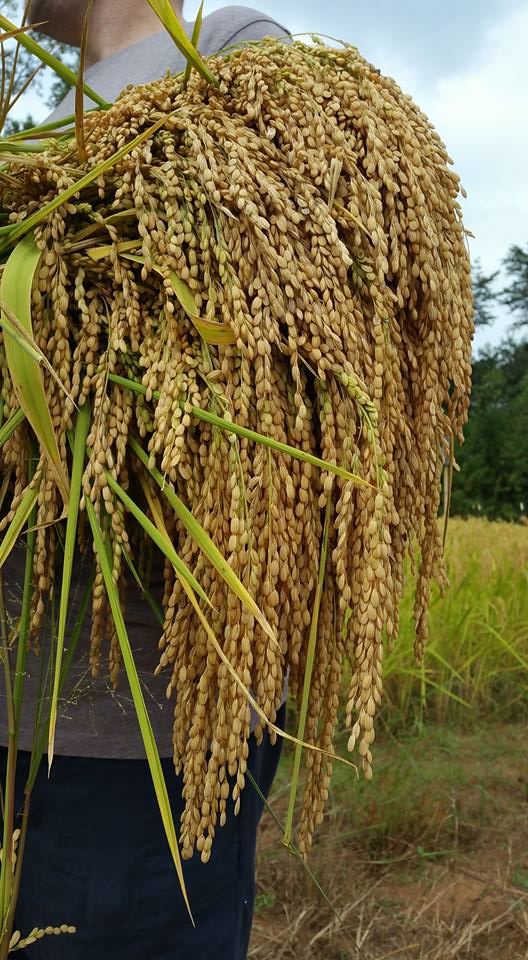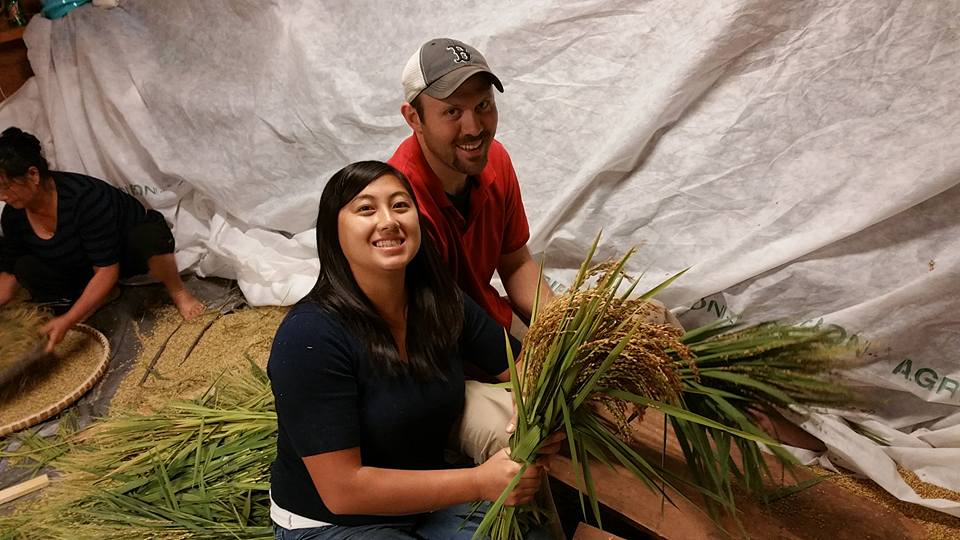Incorporating Culture and Diversity in Local Foods: A Conversation With Der Holcomb
go.ncsu.edu/readext?983100
en Español / em Português
El inglés es el idioma de control de esta página. En la medida en que haya algún conflicto entre la traducción al inglés y la traducción, el inglés prevalece.
Al hacer clic en el enlace de traducción se activa un servicio de traducción gratuito para convertir la página al español. Al igual que con cualquier traducción por Internet, la conversión no es sensible al contexto y puede que no traduzca el texto en su significado original. NC State Extension no garantiza la exactitud del texto traducido. Por favor, tenga en cuenta que algunas aplicaciones y/o servicios pueden no funcionar como se espera cuando se traducen.
Português
Inglês é o idioma de controle desta página. Na medida que haja algum conflito entre o texto original em Inglês e a tradução, o Inglês prevalece.
Ao clicar no link de tradução, um serviço gratuito de tradução será ativado para converter a página para o Português. Como em qualquer tradução pela internet, a conversão não é sensivel ao contexto e pode não ocorrer a tradução para o significado orginal. O serviço de Extensão da Carolina do Norte (NC State Extension) não garante a exatidão do texto traduzido. Por favor, observe que algumas funções ou serviços podem não funcionar como esperado após a tradução.
English
English is the controlling language of this page. To the extent there is any conflict between the English text and the translation, English controls.
Clicking on the translation link activates a free translation service to convert the page to Spanish. As with any Internet translation, the conversion is not context-sensitive and may not translate the text to its original meaning. NC State Extension does not guarantee the accuracy of the translated text. Please note that some applications and/or services may not function as expected when translated.
Collapse ▲ Der Holcomb serves as the Family & Consumer Sciences Agent in Alexander County where she educates community members in the areas of food safety, financial management, food and nutrition, and physical exercise. Within these program areas, Der works with a wide range of audiences from early childhood (3-5 year olds) to senior citizens providing a fun and engaging environment to adopt healthy lifestyle behaviors.
Der Holcomb serves as the Family & Consumer Sciences Agent in Alexander County where she educates community members in the areas of food safety, financial management, food and nutrition, and physical exercise. Within these program areas, Der works with a wide range of audiences from early childhood (3-5 year olds) to senior citizens providing a fun and engaging environment to adopt healthy lifestyle behaviors.
Der shared that her favorite part of being an FCS agent, “among many other reasons, is that I get to work with so many different people from all walks of life. I get to learn about who they are, and what they like, and best of all, help guide them in making some of their life choices.”
Der’s Local Food Landscape
As one of the smaller counties in the state, Alexander County is unique in that it has a wide variety of production allowing a diverse local food scene. Der shared that apple production brings in a lot of agritourism to the county and one of the local orchards is a big supporter of the Farm to School program. Across the county from the orchards, you’ll find strawberry and vegetable growers selling locally and through wholesale. Travel west in the county and you’ll find a u-pick blueberry operation with over 2,000 blueberry bushes in production and travel east in the county you’ll find greenhouses producing tomatoes and cucumbers. Throughout the county you can also find small ruminants, cattle, dairy, field crops (tobacco, wheat, soybean, corn), and hay producers. Approximately two-thirds of the county is farmland and they rank third in the state for Poultry production, fifth for apples, sixth in dairy products, and tenth in beef cattle, (NCpedia).
Der’s Primary Projects & Programs
Having so much access to and knowledge of the local food options in the county allows Der to source locally for many of her programs and all throughout the season. Some of the programs she can do this with include Med instead of Meds, Teen Cuisine, Farm to ECE, BBQ boot camps, and Farm to Fork.
One of Der’s passions is Farm to ECE work. She was formerly the co-chair of the Farm to ECE workgroup through the Local Food Program Team, and works hard in her county to ensure she can reach a wider impact than just the children. With the help of others in her county she’s hosted teacher training around local food procurements, garden visits, Q&A with the Horticulture Agent, and local food taste testing. Garden and classroom activities for the children focus on literacy and language. Partnering with the Wilkes County FCS agent, a library of virtual field trips was created for centers to utilize since transportation can be a challenge for childcare centers. Last fall, they hosted a pumpkin patch event where parents could bring kids after hours to complete educational stations and pick a pumpkin to take home. These are examples of how they try to connect the Head Start center with local farmers or local products. Based on the success of the event last year, Der hopes this year they can turn it into a community-wide event and host a garden party to invite younger home school children to learn about the food system!
Der’s Local Food Traditions
 We asked Der if she had any local food traditions or foods she loves specific to her culture and she shared that during the holidays one of her favorite traditions is cooking freshly harvested rice! She and her family grow rice patties all year long and her mother tends to it until around August and September when her family gathers to drain the patties and hand harvest and thresh the rice. Then, when they celebrate the New Year around the time of Thanksgiving, they help harvest young chicken and her mother cooks the fresh rice. “The smell of fresh, locally grown rice is amazing with a slight hint of nuttiness. With the Hmong culture being so agrarian, a lot of our food eaten during the holiday season is fresh greens and freshly processed meat flavored with a lot of herbs.”
We asked Der if she had any local food traditions or foods she loves specific to her culture and she shared that during the holidays one of her favorite traditions is cooking freshly harvested rice! She and her family grow rice patties all year long and her mother tends to it until around August and September when her family gathers to drain the patties and hand harvest and thresh the rice. Then, when they celebrate the New Year around the time of Thanksgiving, they help harvest young chicken and her mother cooks the fresh rice. “The smell of fresh, locally grown rice is amazing with a slight hint of nuttiness. With the Hmong culture being so agrarian, a lot of our food eaten during the holiday season is fresh greens and freshly processed meat flavored with a lot of herbs.”

When it comes to programming around niche crops that can be found in the Piedmont, Der acts as a resource for her community. A program called “Roots to Stem” allows her to share different niche crops and the parts that can be eaten (flowers, stems, vines, leaves, etc.) at a childcare center after learning that many of them wanted something more ethnically appropriate than just traditional crops. Working with groups within your county that you are less familiar with can be tricky but Der suggests having a discussion around food to open doors for understanding others. “I love being able to share my food customs because it allows others to see the possibilities that exist. For other agents that want to incorporate their cultural foods and traditions into their programming, I would recommend starting with something not overwhelming in flavor or taste. I incorporate Kimchi in my fermentation class and the recipe calls for Fish sauce to flavor Kimchi. Not many are a fan of Fish sauce but I tell the participants that it adds an umami taste and they can adjust as they see fit.”

Der’s Final Thoughts
“North Carolina has such a huge opportunity to grow their food system. I think we’ll start seeing more closed systems and connecting more of each of the food system elements. One way would be through more small food processing and expanding shelf life through packaging or value-added products. I think we’re situated in a place where customers and products are diverse enough to help build our local food system and we have a wide range of farm sizes to meet demands.”
Der’s Favorite Place to Buy Local
Der enjoys shopping at the Hickory Farmers Market and has partiality to it because her family started selling flowers there when the market first started and her brother still sells there! “I love the variety of mushrooms I can find there.” During the summer months Der loves to stop in at The Farmer’s Daughter for vegetables and other local products that are sourced locally for their Farm Store.


